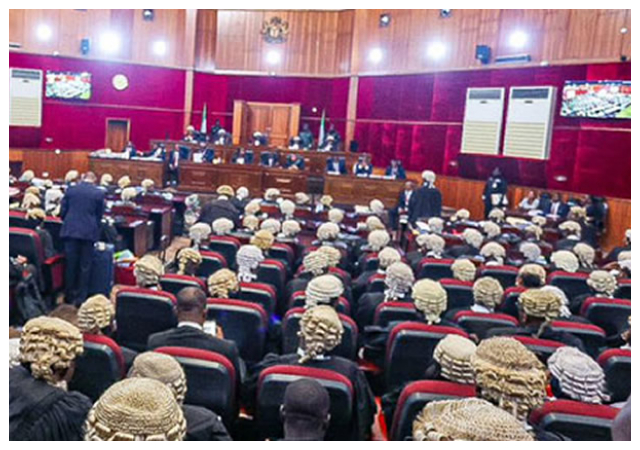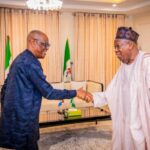
Justice Azinge, the head of Panel 2 of the Kano-based Election Petition Tribunal, reported on Tuesday that some attorneys were trying to bribe judges on her team.
She claimed that this was the second occasion a judge had expressed dissatisfaction with the way some attorneys who were prosecuting election cases in front of her attempted to undermine the legal system by offering bribes to her and her colleagues.
Money is “flying,” she said in the open court on Tuesday, adding that “it’s being rumored that a staff collected N10 million.”
She did not specify whether the employee who took the bribe worked in her court or a different court, though.
However, she issued a warning that she would not tolerate any further attempts to veer the course.
“In recent years, allegations of lawyers bribing judges cast shadows over Nigeria’s judicial system, a complex issue that is threatening to erode the public’s trust in the pursuit of justice.”
“While it is important to acknowledge that not all lawyers engage in unethical practices, the spectre of judicial corruption remains a concerning challenge that the Nigerian legal community must confront head-on.”
According to Gistlover the idea of lawyers buying judges brings attention to the confluence of responsibility, ethics, and power in Nigerian law.
“Corruption within the judiciary undermines the very essence of a fair and impartial legal process, eroding the foundational principles upon which justice is built. The consequences are far-reaching, affecting individuals, communities, and the overall integrity of the rule of law.”
The necessity for thorough reforms is highlighted by reports of lawyers attempting to influence judicial rulings through illegal tactics.
The legal community in Nigeria is tasked with reflection and self-regulation to pinpoint and solve the underlying factors that can support such unethical behavior. In order to destroy the culture of corruption that threatens to erode the legitimacy of the justice system, transparency, accountability, and a dedication to preserving the rule of law are essential.
“Efforts to combat judicial corruption should involve not only legal professionals but also civil society organisations, academia, and governmental bodies.
“Strengthening mechanisms for reporting and addressing allegations of corruption, ensuring the independence of the judiciary, and enhancing ethical training for lawyers are crucial steps in creating a more robust and trustworthy legal ecosystem.”
S. S. Gezawa, the chairman of the Kano State Nigeria Bar Association, responded when asked about the allegation that some attorneys were attempting to bribe some EPT judges by stating that he had read the claim made by Justice Azinge, the chairperson of the Kano EPT, in an online newspaper.
He continued by saying that there was a rumor that one of the court employees had accepted N10 million in bribes.
“I’ll say, it is what it is, it is an allegation, if any member of the EPT or my Lord, the Chairperson of the panel, Justice Azinge, has any allegation or proof of evidence of such, it can be formalised, a complaint can be channelled to the NBA or to the Legal Practitioners Disciplinary Committee for necessary action against the erring lawyer”
“We should also remember that lawyers are not immune to prosecution.”





